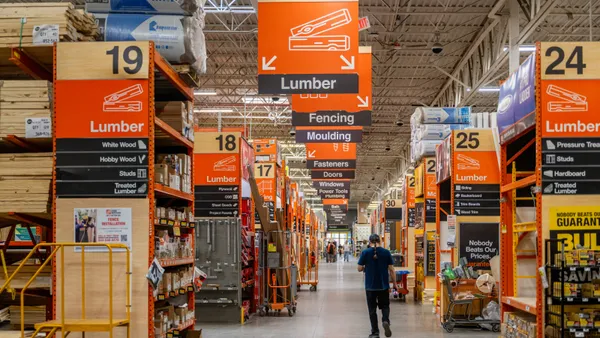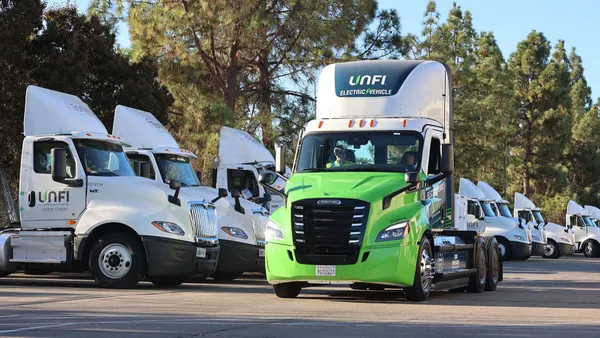Dive Brief:
- Apple does not expect to meet the revenue guidance it provided investors last month as a result of store-closings and supply constraints that have arisen due to the COVID-19 virus, Apple said Monday in a letter to investors.
- "While our iPhone manufacturing partner sites are located outside the Hubei province — and while all of these facilities have reopened — they are ramping up more slowly than we had anticipated," the letter read. Apple beat revenue expectations when it reported its first quarter earnings last month, but was already citing COVID-19 as a potential hurdle for the company's operations.
- Foxconn, one of Apple's largest suppliers, has not provided details on its plans to restart production, according to The New York Times. It did deny a Reuters report that said the manufacturing company planned to have half its China operation running by the end of the month, but it did not clarify the timeline for its operations.
Dive Insight:
"Inventories currently are in good shape, as companies pulled forward product to get ahead of tariff issues and the Chinese New Year," Wells Fargo analysts wrote in a research note last week about the outbreak. "Spring and early summer seasonal inventory has already shipped."
But if production delays continue in China's manufacturing hub then it could result in out-of-stocks in the U.S. "as early as mid-April," Wells Fargo said.
The impact a company experiences as a result of the outbreak will depend on how much it relies on manufacturing from the affected regions. Wells Fargo placed 19 companies in the high-risk category based on their supply chain's exposure to potential disruption. The list includes brands like Fossil, Steve Madden and Nike.
Many factories in China are back up and running. Though officials in Hubei’s provincial government said last week companies cannot restart operations before Feb. 21.
Staffing is a major issue for open facilities as millions in China remain under quarantine. Seventy-eight percent of U.S. companies with operations in China do not have enough staff to operate a full production line and 41% said staff would be the biggest challenge in the next two to four weeks, according to a survey by The American Chamber of Commerce conducted Feb. 11-14.
Companies have been looking for sourcing outside of China as delays continue. And so COVID-19, an illness in the coronavirus family, is exacerbating a trend that began under previously escalating tariffs.
"This virus is going to adjust the structure of the global supply chain," Glenn Richey, a professor of supply chain management at Auburn University told Supply Chain Dive in an interview. "So manufacturers are going to move and when manufacturers move it's unlikely that you move all of that production back to China. Likely, you move it around the globe."
Samsung, a major Apple competitor, expects to benefit from Apple's production issues as it relies on facilities in Vietnam rather than China, according to Reuters.














